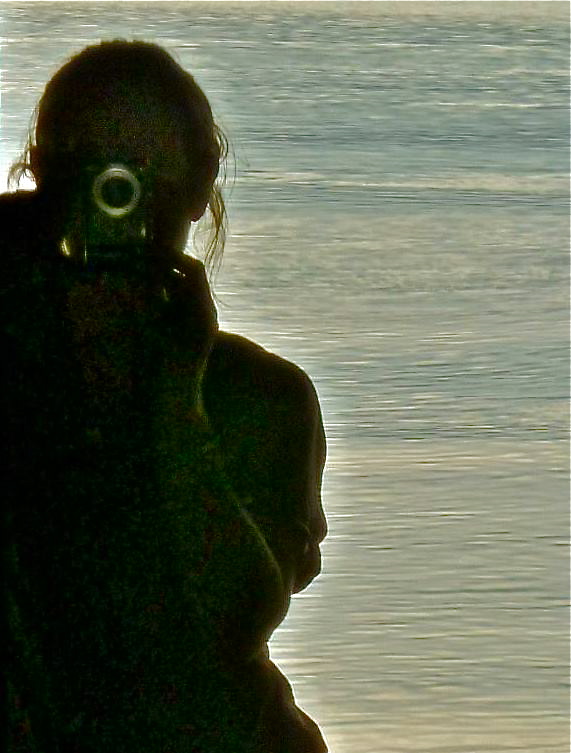Dam engineers and journos
If you haven't read a book called Sideshow: Dumbing down democracy, by Lindsay Tanner, then I'd recommend it. It describes the role of the Australian media in the trivialisation of politics and the over-simplification of complex social and economic issues of the day. Not to mention their control over content.
The media have a tremendous sense of their own importance. This is no more evident than in The Australian's attitude to the impact of its recent allegations of mismanagement among SEQ Water engineers in charge of releases from the Wivenhoe Dam during the critical few days leading up to the flooding of Brisbane 13 months ago. It is, however, no more than I have come to expect from the all-powerful Murdoch press, wherever in the world you happen to read it. (I don't, as a rule.)
It took me a while to identify the accuser. There have been countless references to 'allegations in The Australian' in other media outlets, but very little naming of names. The claims brought about a rapid reconvening of the Queensland Floods Commission of Enquiry, the postponing of the state election date, the fierce further questioning of the four SEQ Water engineers in the spotlight and the subsequent extended leave of absence of two of them.
Many ordinary men and women on the street of this city came to the conclusion – based on little knowledge of hydrology – that the management of the Wivenhoe during the 2011 floods was in some way inadequate or inappropriate. Some of those opinions were formulated within days of the disaster; and those same people were probably highly receptive to the slightest whiff of incompetence emanating from the Floods Enquiry. Of course,
The Australian has no axe to grind with Anna Bligh's Labor government in the run-up to the state election. And it's a damn good story: I'm gripped.
Doubtless in the public interest, The Australian set 'national chief correspondent' Hedley Thomas to work, sifting through reams of official documents and leaked emails before concluding that SEQ Water's engineers were following the wrong strategy – or at least, one that was not in line with the operating manual's four strategies for water release – until two days before the Brisbane River flooded on 11 January 2011.
Mr Thomas was certainly the man for the job. He was writing this kind of piece by 22 January 2011, less than two weeks after the event: see here.
Now, I don't have Mr Thomas's terrier-like tenacity for checking consistency between what the engineers said at the Enquiry and what they had written in their situation reports or emails to each other at the time. Perhaps the levels of stress in the operations room, as the heavens delivered two and then three times the rainfall that had been predicted over an already saturated catchment while 20 million people watched and waited downstream, were so great that an ordinary mortal typed 'W2' instead of 'W3' in an email to his colleague. Or maybe the report that was written afterwards was composed so as to reflect the procedures outlined in the operations manual rather than quick-fire judgements made during a rapidly developing crisis by men too long without sleep. Plain old human error, or cover-up?
There are wider issues: of incompatibility between flood mitigation and water conservation policies; of operating manuals based on flood-modelling predictions alone; of reliability of weather forecasting and interpretation of the Southern Oscillation Index (El Niño or La Niña events) and the subsequent planning of water releases; of potential hidden agendas within the Queensland state government and SEQ Water.
The Australian practically glowed with pride and self-congratulation that 'public-interest journalism' brought about 'the emergence of the truth about Wivenhoe'*. Hedley Thomas's 'scepticism, scrutiny of records and refusing to accept official spin are the hallmarks of fine journalism,' it crows. It may well be that the reopening of the Floods Enquiry has clarified muddied issues and that their final report will recommend new improved procedures based on what has come to light during this latest phase of the Enquiry. I would have much preferred an independent body's findings to have been the spur, however.
I do not condone secrecy or obfuscation, and I am totally in favour of 'fine journalism' rather than fluffy shallow nonsense. But I would also have preferred that Hedley Thomas had spent at least some of those hours battling even nobler causes. If he were to study, for example, the inconsistencies among climate-change deniers, he might be even more concerned about the current inappropriate response to the threat of future flooding on a significantly larger scale than anything that occurred in 2011.
The Queensland Floods Commission of Enquiry will report finally on 16 March. Queensland voters go to the polls on the 24th.
*An independent hydrologist was asked by the reconvened Floods Enquiry in January to develop alternative models for managing the 2011 floods and concluded that flooding had been inevitable and that the engineers had done a reasonable job
This post was last updated on 15 February 2012



